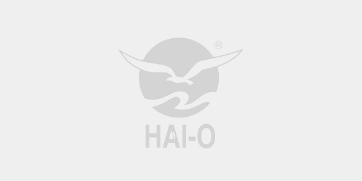Despite the wild swings in the global equity market, which led to meltdown in share prices in 4Q2008 and a drastic change in the economic landscape, veteran fund manager Tan Teng Boo’s stock selection on Bursa Malaysia has not changed much.
Being the asset manager of the closed-fund icapital.biz Bhd, Tan would have bought shares in the depressed market – the evidence of which is the decline in the fund’s cash position from Rm60 million in 2008 to Rm41 million as at May 31, 2009 – for investment purposes.
However, the fund added only three new stocks to its portfolio during FY2009 ended May 31, according to its latest annual report.
It bought shares in low-cost carrier (LCC) Air Asia Bhd, plantation stock Kuala Lumpur Kepong Bhd and pay- TV content provider Astro All Asia Networks plc.
Icapital.biz also invested in Boustead Holdings Bhd, Hai-O Enterprise Bhd, Parkson Holdings Bhd, Poh Kong Holdings bhd and Axiata Group Bhd.
Stocks such as Padini Holdings Bhd, Fraser & Neave Holdings Bhd (F&N), Mieco Chipboard Bhd and Tong Herr Resources Bhd remained in the portfolio like a year ago.
As usual, there are no big names in icapital.biz’s portfolio – no banking stocks, heavyweight blue chips or construction counters. What take up a big portion of the fund’s portfolio are consumer stocks like Parkson, Padini, F&N, Hai-O and Astro.
Tan’s investment strategy has always been to go for “value buys”, which, most of the time, are stocks that are not risky or do not generate much volume. Hence, investors with a big risk appetite may find the portfolio unexciting as it lacks construction or oil and gas names.
Ironically, plantation, oil and gas and construction stocks are the three main themes on Bursa Malaysia. The plantation and oil and gas counters are seen as a proxy for the current recovery in commodity prices as optimism about the global economic outlook starts to build. Investments in construction companies are for an obvious reason – the government’s stimulus package that will dish out jobs to kick-start the domestic economy.
The lack of exciting names and withstanding, icapital.biz recorded a hefty gain of Rm13.8 million from its investment in VADS Bhd in FY2009. It sold its 2.77 million shares in VADS for Rm19.8 million against an investment costof Rm6 million. The disposal was brought about by the privatisation of VADS by its major shareholder Telekom Malaysia Bhd, which owned 63.3% equity interest in it, at Rm7.60 per share.
However, the gains made from VADS were wiped out by a large loss in Axiata Group Bhd. Tan took a bold step to sell shares in Axiata (formerly TM Iinternational Bhd) at a substantial loss in 4QFY2009. The fund incurred a loss of Rm14.16 million from the disposal of three million shares in Axiata for Rm7.74 million, indicating an average selling price of Rm2.58 apiece. Its investment in Axiata had cost Rm21.9 million, or an average price of Rm7.30 per share.
Axiata’s share price skidded after the mobile service provider was listed in April last year after a demerger exercise at Telekom Malaysia. Apart from the high reference price of Rm7.85 set by Bursa Malaysia, the telco was weighed by concerns over its huge borrowings to fund overseas expansion and the anticipation of a long gestation period for its investments in Indonesia, India, Sri Lanka and Bangladesh.
Axiata’s cash call to raise Rm5.2 billion compounded selling pressure on the stock, which dived to about Rm1.50 (ex-adjustment for 5:4 rights issue).
The average cost of Rm7.30 per share seems to suggest that icapital.biz did not subscribe for Axiata’s rights issue.
Interestingly, an investment advisory note issued by Capital Dynamics Sdn Bhd, which is also run by Tan, recommends that investors hold on to Axiata shares as all the issues faced by the telco’s overseas subsidiaries have been discounted in its share price. So, why didn’t icapital.biz do the same instead of selling its shares at a loss?
Tan declined to comment on his decision to sell the Axiata shares at a huge loss, saying that he would have to explain it first to the fund’s owners at an AGM next month.
Icapital.biz invested the sale proceeds from Axiata in Astro. It brought about 8.8 million shares in Astro at a total cost of Rm22.7 million, or an average price of Rm2.57 a share. As at last Thursday’s closing price of Rm3.44, its investment in Astro was worth Rm30.4 million.
The fund also bought 2.19 million shares in AirAsia at about Rm2.17 million, or an average price of 99 sen. However, Tan did not park the money for long in the LCC. The shares were unloaded at Rm2.71 million, making a 25% or Rm548,641 gain.
The divestment in AirAisa was probably due to Tan’s view that the economics of the airline industry were simply not attractive. “When demand is strong, oil prices go up and play havoc with costs and [profit] margins. Oil prices go down when demand is weak and then the airlines have to deal with low traffic. So, it is a case of head you win, tail I lose,” Tan was quoted by Reuters as saying two weeks ago. He added that the growing presence of LCCs also worsened the economics of the airlines business.











